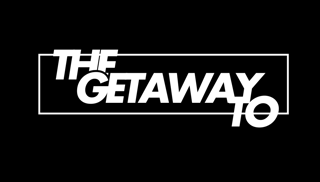How to Stay on Top of Your Finances
A Practical Guide
FINANCEPERSONAL GOALS
Managing finances doesn’t have to be overwhelming. By breaking it down into daily, weekly, monthly, quarterly, and annual habits, you can create a system that keeps you on track with minimal stress. Here’s a comprehensive guide to how I manage my finances effectively, with simple tools and habits that anyone can adopt.
Daily Financial Habits
Small daily actions compound into big results over time. Here’s how I ensure I stay on top of my finances every day:
By dedicating 5–10 minutes a day to these tasks, I maintain financial clarity and avoid letting small mistakes slip through.
Weekly Financial Check-Ins
Weekly reviews help me course-correct before small issues become bigger problems. These check-ins aren’t time-intensive but are highly impactful.
Spending just 20–30 minutes weekly ensures I’m proactive rather than reactive with my money.
Monthly Financial Planning
The monthly check-in is where I take a deeper dive. It’s a chance to reflect on the past month and set the stage for the next one.
Monthly reviews allow me to celebrate small wins and make course corrections when needed.
Quarterly Financial Assessments
Every three months, I step back to review my bigger financial picture. This helps ensure I’m on track for my yearly goals.
Quarterly check-ins are an excellent time to identify any emerging patterns or opportunities to optimize.
Annual Financial Review and Planning
At the end of the year, I conduct a comprehensive review. This helps me reflect on the past year and set a strong foundation for the next.
This annual reset ensures that I start the year with clear priorities and a solid action plan.
My Favorite Tools for Financial Success
Over time, I’ve found that the right tools make managing finances much easier. Here’s a list of the apps and platforms I rely on most:
Budgeting Apps: Track expenses and plan budgets effortlessly (e.g., Mint, YNAB).
Banking Apps: Monitor account balances and transfer funds quickly.
Investment Platforms: Grow your money with apps like Robinhood or Vanguard.
Goal-Setting Tools: Notion and Google Sheets help me stay organized and focused.
Final Thoughts
Effective financial management isn’t about perfection; it’s about consistency. By breaking down tasks into manageable daily, weekly, monthly, quarterly, and annual actions, you can create a system that works for your lifestyle.
With just a few minutes each day and more in-depth reviews at longer intervals, you can achieve your financial goals without feeling overwhelmed. Whether you’re just starting your financial journey or looking to refine your strategy, this approach can help you stay on track.
Remember: small steps lead to big changes. Start today, and watch how little actions can build a brighter financial future.
